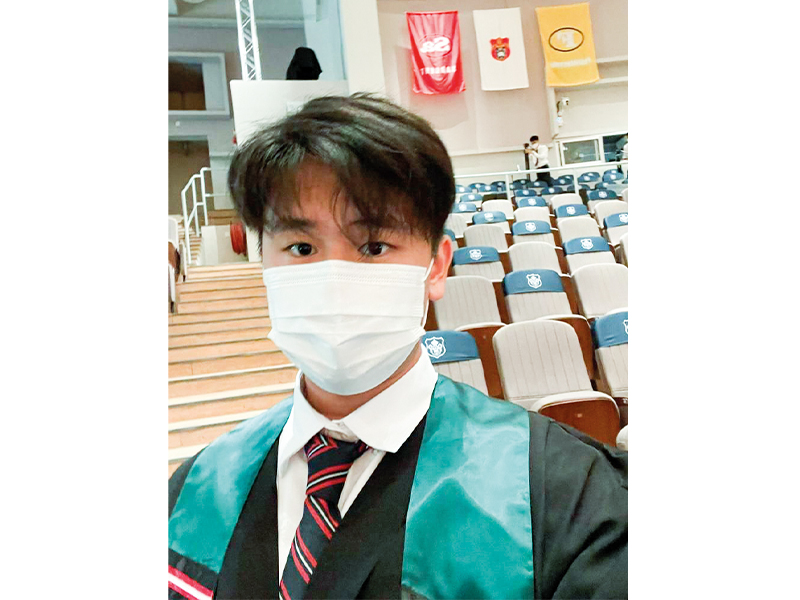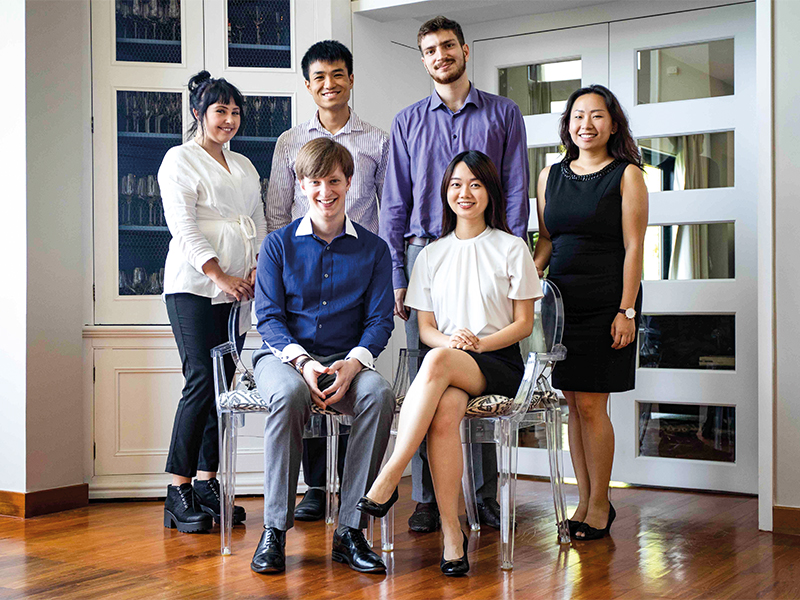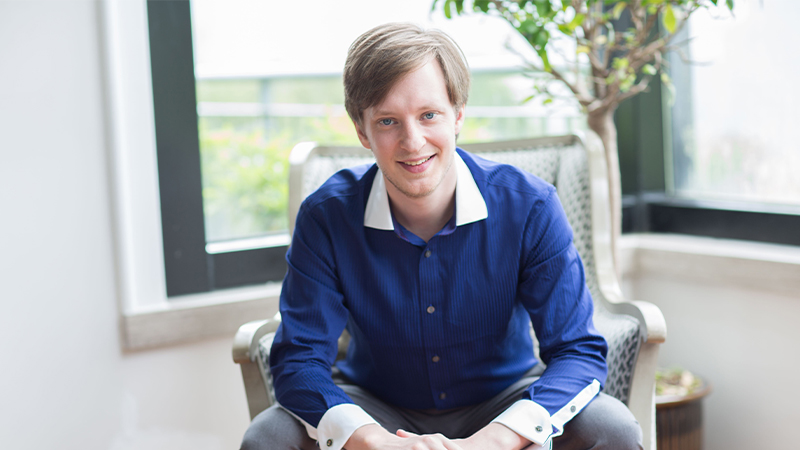Seeing your child prepare for the IB Diploma Programme exams can feel as stressful as sitting them yourself. But help is at hand! Here, we get tips from a star IB student and an expert tutor.
A word from an IB Diploma student
Name: Traven Ng
School: Diocesan Boys’ School IBDP
Score: 45
Congratulations on your brilliant achievement in the IB Diploma exams!! How did you feel when you heard your result?
Although I was confident in my abilities, I had suddenly fallen ill during the exam period; as a result, I believed that I performed terribly, especially in English as I couldn’t put a hundred percent effort into revision.

On the day before the release of the results, I went out to dinner with a few friends who also took the IB to distract ourselves from the stress and anxiety. We all knew that the top scorers of 44 and 45 would get a call that night, so we could all feel the tension in the room while trying to have fun.
During the dinner, my coordinator gave me a call telling me I got a 45. I was too stunned to speak at first, but then I was over the moon hearing the news. I immediately felt the stress and anxiety leaving my body and felt confident in preparing for the press conference my school had for top scorers the next day.
What was your favourite subject and why?
Economics! I liked it because, despite the difficulty of the content, it was relatively more manageable than other subjects I took, and I realised the concepts were highly applicable to real-life events worldwide. For example, when I watched the news regarding the consumption voucher schemes in Hong Kong, I could quickly relate it to the concept of expansionary fiscal policy that I learnt in my economics classes, and evaluate the government’s objective to rescue the HK economy. I also liked Economics as my teacher was extremely patient with me and would always answer my questions very clearly.

Did you have any special routines when preparing for your IB exams?
During my first year, I didn’t realise the sheer amount of coursework I would get, leading to me procrastinating and managing my time poorly. However, as I slowly developed into a full-fledged IB learner, I started cultivating good learning habits, including critical thinking and proper time management.
In preparation for my final IB exam, I gathered the lessons I learnt along the way and did my best not to repeat the same mistakes from my first year. I made to-do lists for every day and revision schedules, and placed little post-it notes around my room to remind myself to focus.
In terms of revision, I started by going over concepts I was unfamiliar with, especially in the science subjects. Then, I focused on doing as many past papers as possible as it is a valuable way of testing your knowledge and familiarising yourself with the style of questions in IB. I would go over the mistakes I made before the exam so that I didn’t repeat the same mistakes.
How did BartyED help with your preparation for the IB exams?
I sought help from BartyED for my IB English HL Essay with only two days left until the final deadline. (Poor time management, I know!) Not only were they willing to help even with those time constraints, but they also assigned a very patient and helpful IB tutor, Mr Malone, to provide suggestions for my essay. It went from being a disorganised mess to a coherent and persuasive essay in just a few days. Mr Malone also helped me practice for my English Paper 1 exam. His comments and criticism improved my writing ability, and I achieved a 7 on my final exam.
What are you planning from here as far as further study and career aspirations go?
I’ll be studying PPE (Philosophy, Politics and Economics) at the University of Warwick in the UK. I haven’t decided on a particular career path; I’m still trying to explore my passions and interests to see what suits me most. If I were to choose now, I’d probably say that I want to work in the finance industry after graduating from university.
What do you like to do in Hong Kong when you’re not studying?
I like to spend time volunteering with organisations like HandsOn, Mother Choice and Orbis to bring a positive change to Hong Kong. In my free time, I usually go to the gym to take a break and release stress from the workload by lifting heavy weights; I’m more energetic and productive after exercising. I also like to hang out with my partner, friends and family to enjoy quality time with people I love.
A word from a tutoring expert and IBDP tutor
Name: Jerome Barty
Company: BartyED (Barty Education and Development)
Role: Managing Director
The IB is renowned as a difficult programme. What does it take to achieve the highest possible score like Traven did?
Any student who scores above 40 will be welcomed by a top university; a score of 45 will often open the door to scholarships as well as extra college credit in North America. A perfect score in the IB Diploma is quite a feat. It requires a high degree of academic commitment as well as diligence in working consistently throughout the two-year programme.
Interestingly, with the exception of the assigned grades in 2020, the percentage of perfect scores has remained the same since the IBDP was first introduced in the 1960s. Consequently, there’s no question of grade inflation as has been the case with A levels in recent years.

What are the keys to success in the IB?
Developing key academic skills in advance of starting the IB Diploma is perhaps the largest determiner of success. Too often, I meet students in their first year of the Diploma who struggle to produce a five-paragraph essay, or don’t know how to keep organised notes. Students who have completed GCSEs or have gone through a more rigorous secondary programme often find the transition into IBDP easier.
What’s more, learning to find pleasure in academic study can help students find that extra bit of motivation needed to achieve highly in the IB. Students who read for pleasure often out-perform their peers who don’t, and this applies across all subjects, not just English! It helps develop their attention span, imagination and curiosity – all key features of a successful IB student.
What kind of specialised training do you provide for IB students?
The specifics of the training is dependent on the needs of the student. One student may need more help with structuring responses, whereas another might need assistance with the content of their course. We support all major IB subjects including TOK and particularly enjoy supporting students’ Extended Essays. Whatever the case may be, BartyED tutors are highly qualified to guide any student through the trials and tribulations of the IB.
Our primary focus is on the development of students’ skills and academic independence so that they may thrive beyond the IB programme. For instance, the recognition of keywords is an essential skill for any IB exam candidate. Knowing the difference between a “To what extent” and an “Explore” question can be what distinguishes a student that gets 38 from one who gets 40 or above, and this applies in many subjects. When you’re applying to the top universities in the world, it’s that degree of precision in your understanding and analysis that can make all the difference.
Keen for your child to get some additional educational support this year? Find out more about the tutors and programmes at bartyed.com or call 2882 1017.
This article first appeared in the Autumn 2022 issue of Expat Living magazine. Subscribe now so you never miss an issue.





